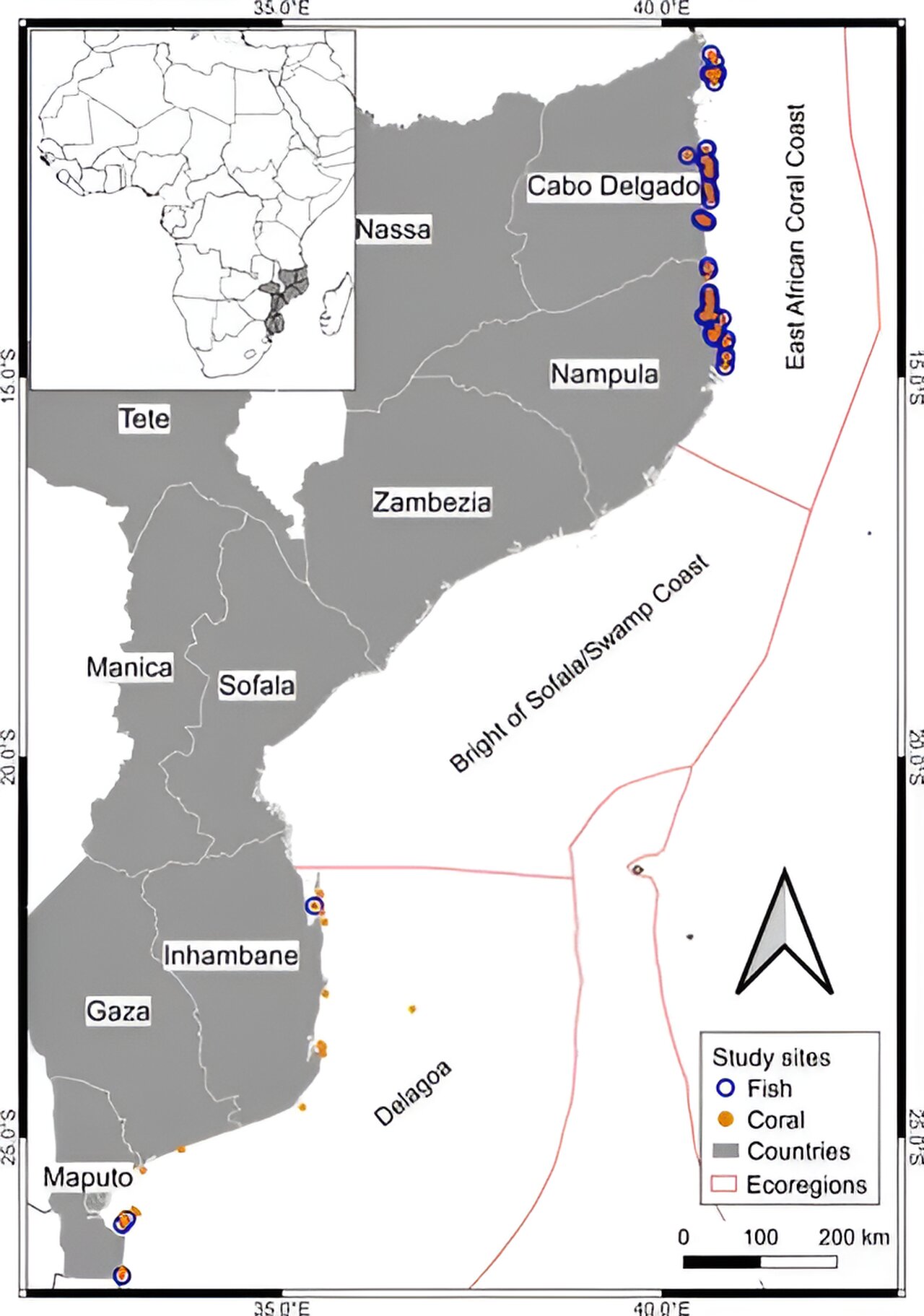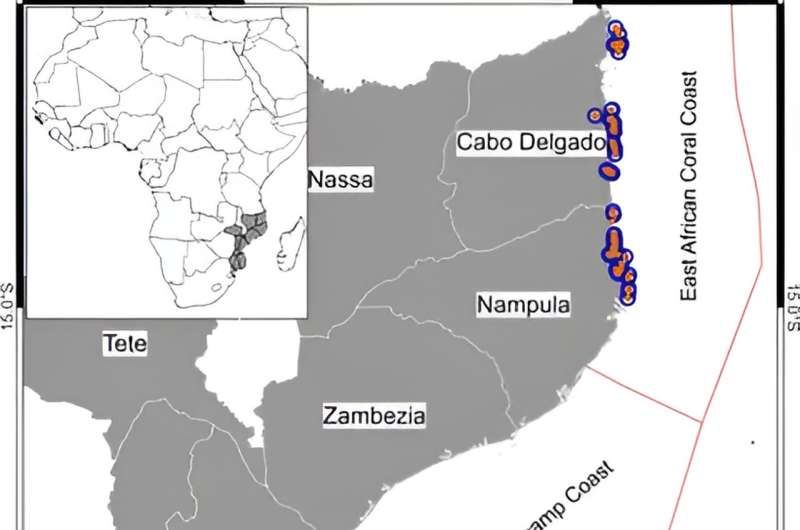

A new study led by staff from the Wildlife Conservation Society (WCS) in East Africa has used a predictive artificial intelligence (AI) algorithm to confirm the location of previously-unmapped high marine biodiversity areas along Mozambique’s extensive coastline.
Leveraging satellite data on temperature, water quality, sediments, and ocean currents, researchers were able to identify a shortlist of environmental conditions that best support a high diversity of marine species. This breakthrough in biodiversity mapping comes as Mozambique continues its efforts to map both terrestrial and marine Key Biodiversity Areas (KBAs) and expand its network of marine protected areas. These efforts were previously hindered due to data scarcity for important underwater ecosystems in the country.
“Mozambique’s extensive 2,450 km coastline makes fieldwork for identifying priority conservation areas both time-consuming and costly,” said Hugo Costa, Marine Program Director for WCS Mozambique.
“This new model enables WCS, conservation partners, and the Government to accelerate progress by highlighting coral reef hotspots for further investigation. These areas have the potential to become Key Biodiversity Areas or future protected areas, prioritized for protection and improved management.”
The findings are a significant step forward for conservation in Mozambique, allowing researchers and government partners to move forward with fast and affordable precision identification of biodiversity hotspots. With the ability to refine predictions to smaller, locally relevant scales, the study helps to address potential conflicts between large protected areas and coastal communities, supporting Mozambique’s national approach of co-creating conservation strategies with local communities and state agencies.
The study, titled “Comparing modeled predictions of coral reef diversity along a latitudinal gradient in Mozambique,” is published in Frontiers in Ecology and Evolution and was co-authored by Dr. Tim McClanahan and Dr. Erwan Sola of WCS. The research builds on a previous regional model that identified 19 high-priority coral reef biodiversity areas, highlighting their potential for KBA status.
“Additional data is always required to inform effective conservation, but the coast of Mozambique is huge,” added Dr. Sola, Lead Coral Reef Scientist for WCS Mozambique. “So, these models will help us prioritize where we should focus our time and resources.”
The study tested five AI models to predict marine biodiversity in Mozambique, comparing the results to a larger Western Indian Ocean model, which showed strong agreement. The findings will be applied to national conservation planning, particularly in identifying KBAs, while also guiding local efforts to protect smaller, high-priority areas in line with Mozambique’s conservation strategies.
“As more satellite data becomes available and models are created, we are learning and becoming more confident in their predictive ability, their strengths and weaknesses,” said Dr. McClanahan, the study’s lead author and Director of Science for the WCS Global Marine Program.
“They may not be perfect but they are beginning to provide realistic solutions to large scale biodiversity and sustainable resource use problems—addressing the data deficit problem that plagues many important decisions that are begging for data-based solutions.”
More information:
Timothy R. McClanahan et al, Comparing modeled predictions of coral reef diversity along a latitudinal gradient in Mozambique, Frontiers in Ecology and Evolution (2024). DOI: 10.3389/fevo.2024.1450383
Provided by
Wildlife Conservation Society
Citation:
AI models identify marine biodiversity hotspots in Mozambique (2024, October 2)
retrieved 2 October 2024
from https://phys.org/news/2024-10-ai-marine-biodiversity-hotspots-mozambique.html
This document is subject to copyright. Apart from any fair dealing for the purpose of private study or research, no
part may be reproduced without the written permission. The content is provided for information purposes only.